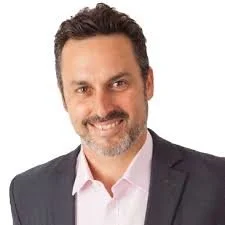A forum that facilitates conversations among school communities can help to establish a plan for a better future while working in the present. Constant discussion helps leaders learn new methods, update their vision, and address the current implications of trauma-informed learning. Paul Liabenow and Mike Domagalski of the Michigan Elementary Middle School Principals Association explain the imperative to move from a strong vision, to conversation, to action of behalf of today’s traumatized students.
Read MoreOur discussion explored visioning and building schools through a more holistic, compassionate approach to working with students. The Rainbow Community School in Ashville, NC, was used as a case study. Drs. Renee Owen and Christine Mason led us into trauma-informed visioning, weaving understanding and support into the fabric of schools. We learned to craft visions prioritizing relationships, well-being, and spiritual connections, fostering student growth beyond traditional academic metrics.
Read MoreIf our students need to be in a psychologically safe place before they can succeed academically, today’s guests — Drs Yvette Jackson and Michele Rivers Murphy — will argue that the same logic of “first this and then that” also applies to the faculty: reducing student trauma begins with improving the well-being of teachers.
Read MoreThe essential theme underlying this series is highlighted right in the podcast’s subtitle: alleviating student trauma is best accomplished through a whole community approach. That means, to effectively identify and lessen the impact of student trauma requires mental health practitioners, faculty members, parents, and community members to work together. Brooke O’Drobinak, an administrator, teacher, and instructional coach, and Beth Kelley, a trauma informed consultant and conscious leadership coach offer a number of powerful ideas on how educators — without extensive training — can contribute to reducing the effects of trauma. That awareness and effort can in turn give educators greater confidence that they can have the desired impact.
Read MoreGiven the ongoing pandemic, we hear a lot today about quote/unquote “lost learning.” Some educators will try to lessen the impact and anxiety of that phrase by restating it as quote/unquote “delayed learning.” Either way, COVID 19 has impacted learning. But that focus masks a larger tragedy. If our series on trauma in the schools is teaching us anything, it’s that learning is lost for millions of traumatized kids every day, COVID or no COVID. And these are kids that many educators have never been trained to engage. John King and Karen Oehme are part of a small but growing contingent of university educators who are training the next generation of teachers about trauma-informed school practices before they enter the classroom.
Read MoreAlong with their home and natural environments, a child’s community is now recognized as a potential contributor to adverse childhood experiences. The results can be devastating for development. Substandard schools, intolerance, discrimination, and racism can lead to chronic health issues, minimum employment, and long-term poverty. Authors and educators Victoria Romero and Justin Hendrickson take us through an explanation.
Read MoreWe prepare students to leave high school into a broken system. This situation can only change by answering two questions:
> When students graduate, what do we want them to be able to do with their knowledge and skills as they confront uncertainty in our complex and rapidly evolving world.
> How do we help students develop a sense of purpose and meaning, so that they feel they can have a positive impact in life?
Guest Mathew Portell explains what it means to have a trauma-informed school.
Read MoreA number of the people we have interviewed in this series have used the word “stigma” to refer to much of our society’s reluctance to openly discuss the origins and consequences of trauma, and mental health issues in general. Unfortunately, what remains hidden remains untreated, and the impact on youth can be severe. One person who is motivated to change that reluctance because of her own experience with trauma and grief is Peyton Barsel.
Read MoreOne of the goals of our series is to raise awareness and the level of discourse around student trauma and mental health in general. Turning up the volume here is needed because – one – most educators are still largely uninformed about aspects of mental health and – two – and that causes us not to talk about depression, suicide, abuse and trauma in general. And if we’re not bringing these subjects out into the open, kids keep all those emotions bottled up inside of them. Dr. Glenn Albright and Kim Weiland from Kognito, a firm that develops avatar-based simulations to help develop trauma-informed educators, share their insights.
Read MoreA forum that facilitates conversations among school communities can help to establish a plan for a better future while working in the present. Constant discussion helps leaders learn new methods, update their vision, and address the current implications of trauma-informed learning. Paul Liabenow and Mike Domagalski of the Michigan Elementary Middle School Principals Association explain the imperative to move from a strong vision, to conversation, to action of behalf of today’s traumatized students.
Read MoreThis podcast series focus primarily on the trauma that students carry with them into the classroom. But, many school faculty, staff and administrators are also experiencing trauma. COVID has dislocated relationships and put pressure on educators to quickly address ”learning loss.” There is a critical need for school leaders at any level to promote self-care through mindfulness training. Mindful leadership expert, Michael Bunting, explains the first safe steps.
Read MoreAnswering the questions "What do we want our graduates to know and be able to do with their knowledge and skills when they receive their high school diplomas?" and "What kind of person do we want them to be?" requires educators to develop a long-term vision — a vision that necessarily addresses student wellness, and any component of trauma, as much as it does academic achievement. Drs Christine Mason and Renee Owen offer their insight.
Read MoreGiven the pandemic, concern over students’ social and emotional health is now top-of-mind for educators and their support staff. The reality for many students, though, is that COVID has only exacerbated any number of adverse childhood experiences they carry in their trauma-filled backpacks. This podcast series focuses on how we can reduce trauma's impact.
Read More












